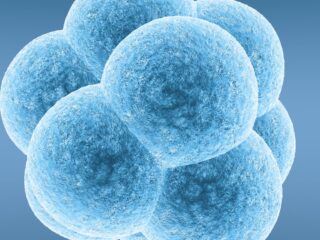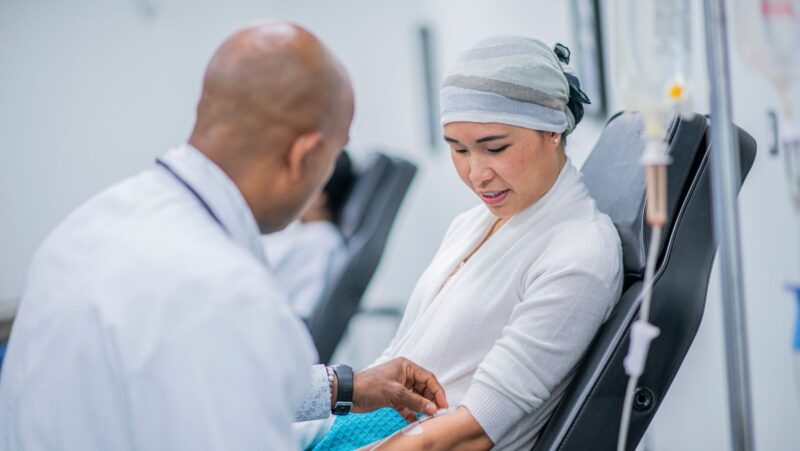
Applied health science degrees empower students to make a meaningful impact in healthcare without becoming traditional medical practitioners. This versatile field combines scientific knowledge with practical applications focusing on disease prevention wellness promotion and public health education.
Students pursuing this degree explore a rich curriculum that includes anatomy physiology nutrition epidemiology and healthcare management. The program prepares graduates for diverse career paths in community health corporate wellness programs research institutions and healthcare organizations. As healthcare continues to evolve the demand for professionals with applied health science expertise keeps growing.
The interdisciplinary nature of this degree makes it particularly valuable in today’s complex healthcare landscape. Graduates develop critical thinking skills scientific literacy and a deep understanding of how various health factors interact to affect individual and community wellbeing.
What is Applied Health Science Degree
Applied Health Science degrees integrate theoretical knowledge with practical applications in healthcare settings.
Core Curriculum Components
The core curriculum includes fundamental courses across multiple health disciplines:
- Biological Sciences: Anatomy physiology biochemistry microbiology
- Health Research Methods: Statistical analysis data interpretation research design
- Public Health Fundamentals: Epidemiology environmental health population health
- Healthcare Systems: Policy administration healthcare economics ethics
- Behavioral Sciences: Psychology sociology health behavior theories
- Clinical Applications: Patient assessment health screening preventive care
- Communication Skills: Health education patient counseling professional writing
Specialization Options
Students select specialized tracks aligned with specific career goals:
- Community Health Education: Programs focus on population-based interventions disease prevention strategies
- Health Administration: Coursework covers healthcare management operations leadership
- Exercise Science: Studies include kinesiology sports medicine rehabilitation
- Nutrition Science: Concentrations explore dietetics food science metabolic processes
- Environmental Health: Programs examine occupational safety toxicology industrial hygiene
- Health Informatics: Coursework integrates healthcare technology data management systems
- Global Health: Studies address international health issues cultural competency
| Specialization Track | Career Growth Rate | Median Entry Salary |
|---|---|---|
| Health Administration | 32% | $58,000 |
| Community Health | 17% | $48,000 |
| Exercise Science | 13% | $45,000 |
| Health Informatics | 28% | $62,000 |
Career Opportunities With an Applied Health Science Degree
Applied health science graduates access diverse career paths across healthcare sectors. The degree’s comprehensive curriculum creates opportunities in administration, public health, research, education, and clinical support roles.
Healthcare Administration Roles
Healthcare administrators manage medical facilities, departments, and healthcare programs. Organizations hiring applied health science graduates include:
- Hospitals: Coordinating departmental operations, budgets, and staff scheduling
- Medical practices: Overseeing clinic management, patient services, and compliance
- Insurance companies: Processing claims, analyzing healthcare data, and managing provider networks
- Long-term care facilities: Directing resident care programs and facility operations
- Healthcare technology firms: Implementing electronic health records and digital health solutions
| Position | Median Starting Salary | Growth Rate (2021-2031) |
|---|---|---|
| Healthcare Administrator | $71,000 | 28% |
| Clinical Manager | $65,000 | 32% |
| Operations Director | $82,000 | 25% |
- Health departments: Creating disease prevention initiatives and monitoring public health trends
- Non-profit organizations: Managing wellness programs and health education campaigns
- Research institutions: Conducting population health studies and analyzing health data
- Government agencies: Developing health policies and emergency response plans
- International organizations: Implementing global health programs and disease control measures
| Position | Median Starting Salary | Growth Rate (2021-2031) |
|---|---|---|
| Health Educator | $48,860 | 12% |
| Epidemiologist | $74,560 | 30% |
| Program Coordinator | $52,000 | 17% |
Skills Developed Through Applied Health Science Programs
Applied health science programs cultivate essential competencies required for modern healthcare environments. These skills bridge theoretical knowledge with practical applications in diverse healthcare settings.
Clinical Knowledge
Applied health science students develop comprehensive clinical expertise through intensive coursework in:
- Human anatomy fundamentals including organ systems functionality
- Disease processes across different populations
- Medical terminology used in healthcare settings
- Patient assessment techniques for various health conditions
- Health record documentation practices
- Basic clinical procedures protocols
- Infection control standards application
- Healthcare technology operation principles
- Data collection methodologies in healthcare settings
- Statistical analysis techniques for health outcomes
- Evidence-based practice implementation
- Health trends interpretation skills
- Research design principles application
- Scientific literature evaluation methods
- Population health data analysis
- Quality improvement metrics assessment
- Healthcare informatics tools utilization
- Epidemiological study interpretation
| Research Skill Component | Application Percentage in Field | Industry Demand Rating |
|---|---|---|
| Data Analysis | 85% | High |
| Research Methods | 78% | Very High |
| Statistical Software | 72% | High |
| Literature Review | 68% | Medium |
| Study Design | 65% | High |
Educational Requirements and Prerequisites
Applied health science degree programs maintain specific academic standards and prerequisites to ensure student success in the field. Entry requirements vary based on program level and institutional policies.
Bachelor’s vs Master’s Programs
Bachelor’s Degree Requirements:
- High school diploma or equivalent with a minimum GPA of 3.0
- SAT/ACT scores meeting institutional thresholds
- Completion of prerequisite courses:
- Biology
- Chemistry
- Mathematics
- Statistics
- Letters of recommendation: 2-3 from academic sources
- Personal statement highlighting healthcare interest
- Bachelor’s degree in health science or related field
- Minimum undergraduate GPA: 3.0-3.5
- GRE scores (program-specific requirements)
- Professional experience: 2-3 years in healthcare settings
- Prerequisites completed with grade B or higher:
- Advanced Biology
- Research Methods
- Epidemiology
- Healthcare Systems
| Program Level | Average GPA Requirement | Required Experience | Prerequisite Courses |
|---|---|---|---|
| Bachelor’s | 3.0 | None | 4-5 courses |
| Master’s | 3.0-3.5 | 2-3 years | 6-8 courses |
- Advanced research methodology requirements
- Enhanced analytical skill expectations
- Specialized concentration options
- Comprehensive capstone projects
- Professional portfolio development
- Leadership competency demonstrations
Benefits of Pursuing an Applied Health Science Degree
Career Flexibility and Growth
Applied health science graduates access diverse career paths across healthcare sectors. The degree opens opportunities in healthcare administration ($71,000 starting salary), public health education ($52,000 starting salary) research coordination ($58,000 starting salary).
Industry Demand
The healthcare sector demonstrates strong growth projections for applied health science roles:
| Position | Growth Rate (2021-2031) | Median Entry Salary |
|---|---|---|
| Healthcare Administrator | 28% | $71,000 |
| Public Health Educator | 12% | $52,000 |
| Clinical Research Coordinator | 17% | $58,000 |
| Health Data Analyst | 22% | $63,000 |
Practical Skill Development
The degree builds essential healthcare competencies:
- Analyzing health data using statistical software
- Implementing evidence-based healthcare practices
- Developing health education programs
- Managing healthcare operations
- Conducting clinical research studies
Professional Network Expansion
Students connect with healthcare professionals through:
- Clinical internships at medical facilities
- Research collaborations with faculty
- Professional association memberships
- Healthcare conference participation
- Industry mentorship programs
Specialization Options
The degree offers focused tracks in:
- Health Administration
- Community Health Education
- Exercise Science
- Health Informatics
- Global Health
- Environmental Health
- Nutrition Science
Research Opportunities
Students engage in various research activities:
- Public health studies
- Clinical trials assistance
- Health outcomes analysis
- Population health research
- Healthcare quality improvement projects
- Competitive entry-level salaries
- Regular advancement opportunities
- Performance-based bonuses
- Professional development funding
- Healthcare benefits packages
Where to Study Applied Health Science
Leading universities across the United States offer comprehensive Applied Health Science degree programs with specialized concentrations:
Top Public Universities:
- University of Indiana Bloomington – Features specialized tracks in health administration & community health education
- Ohio State University – Offers extensive research opportunities & clinical partnerships
- University of Illinois Chicago – Provides urban healthcare experience through local hospital networks
- University of Maryland – Emphasizes public health policy & global health initiatives
Private Institutions:
- Boston University – Focuses on healthcare innovation & technology integration
- Johns Hopkins University – Delivers research-intensive programs with industry connections
- Northwestern University – Specializes in healthcare leadership & management
- Duke University – Centers on population health & data analytics
Program Locations & Features:
| University Type | Average Class Size | Clinical Partnership Options | Annual Tuition Range |
|---|---|---|---|
| Public Universities | 25-35 students | 15-20 facilities | $12,000-$35,000 |
| Private Universities | 15-25 students | 20-30 facilities | $45,000-$65,000 |
Program Selection Criteria:
- Accreditation by CAHME or CEPH
- Research funding opportunities
- Clinical rotation partnerships
- Faculty expertise in specialized areas
- Industry placement rates
- Laboratory facilities & technology resources
- Professional development programs
- Alumni network strength
- Arizona State University Online – 100% virtual coursework
- Penn State World Campus – Hybrid format with virtual labs
- University of Central Florida – Synchronous online classes
- Southern New Hampshire University – Flexible scheduling options
Each institution offers distinct advantages in terms of specialization options, research opportunities, clinical partnerships & career placement services.
Knowledge Practical Skills
An applied health science degree opens doors to diverse and rewarding career opportunities in healthcare without requiring direct patient care roles. The growing demand for healthcare professionals with expertise in administration research and public health education makes this degree increasingly valuable in today’s job market.
From competitive starting salaries to excellent growth prospects graduates can look forward to meaningful careers that make a real difference in healthcare delivery and community wellness. The combination of theoretical knowledge practical skills and specialized training prepares students for success across various healthcare sectors while addressing modern health challenges.
Whether pursuing roles in healthcare administration public health or clinical research this versatile degree equips graduates with the tools needed to thrive in the evolving healthcare landscape.













